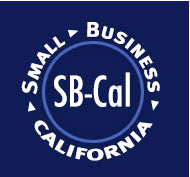Awhile back I mentioned the calculations of experience modifications has been changed by the Workers Compensation Insurance Rating Bureau effective January 1.Where in the past the Bureau charged in the calculation dollar for dollar up to $2000 they are now using $7000 per claim. They also changed the calculation factors so that is you have frequent claims your modification will increase and conversely if you have a low frequency your modification will go down.
We are just beginning to see the impact of this and in some cases it has been dramatic. For example a nonprofit that I work with under the old calculations would have had a modification of 155% under the old rules will now have a modification of 193%. We have also seen reductions but clearly not as dramatic as the increases. It should be also noted that this could have an impact on some contractors as in some cases they cannot bid work if their experience modification is over 125%.
For those of you who have policies that renew in January and who have an experience modification what have you seen. For other who have policies renewing later in the year you may want to contact your insurance broker to see the impact of these changes.
Please see the language that has been incorporated in the Senate health bill. This has serious impacts for small business. The first regulations are around the so called Cadillac coverage tax. Employers will have significant reporting requirements. Keep in mind that benefits are not just health insurance but life, dental,vision HSAs or any benefit.
You also will be required to file an informational report on any vendors that you pay over $600. The change here is that you will now be required to file reports for corporate vendors.
How the tax enforcement will work is not determined and will begin 2013. The IRS will enforce the $600 effective 2011. The National Small Business Association of which Small Business California is a core member has been very vocal on these issues representing the interest of small business.
Sec 9001:
>
>>> (4) RESPONSIBILITY TO CALCULATE TAX AND APPLICABLE SHARES-
>>>> `(A) IN GENERAL- Each employer shall--
>>>>> `(i) calculate for each taxable period the amount of the excess
>>>>> benefit subject to the tax imposed by subsection (a) and the
>>>>> applicable share of such excess benefit for each coverage
>>>>> provider, and
>>>>> `(ii) notify, at such time and in such manner as the Secretary may
>>>>> prescribe, the Secretary and each coverage provider of the amount
>>>>> so determined for the provider.
>>>> `(B) SPECIAL RULE FOR MULTIEMPLOYER PLANS- In the case of
>>>> applicable employer-sponsored coverage made available to employees
>>>> through a multiemployer plan (as defined in section 414(f)), the
>>>> plan sponsor shall make the calculations, and provide the notice,
>>>> required under subparagraph (A).
>
>
> And below is a summary of the 'revenue offset provisions' in the
> Senate bill. (Section 9002 also refers to your concern, where
> employers must include the value (cost) of the employer benefit on the
> W-2. Section 9006 refers to the $600 threshold that you mentioned.)
>
> Sec. 9001. Excise tax on high cost employer-sponsored health coverage.
> Levies an excise tax of 40 percent on insurance companies and plan
> administrators for any health coverage plan that is above the
> threshold of $8,500 for single coverage and $23,000 for family
> coverage. The tax would apply to self-insured plans and plans sold in
> the group market, but not to plans sold in the individual market
> (except for coverage eligible for the deduction for self-employed
> individuals). The tax would apply to the amount of the premium in
> excess of the threshold. The threshold would be indexed at CPI-U plus
> one percentage point, and a transition rule would increase the
> threshold for the 17 highest cost States for the first 3 years. An
> additional threshold amount of $1,350 for singles and $3,000 for
> families is available for retired individuals age 55 and older and for plans that cover employees engaged in high risk professions.
>
> Sec. 9002. Inclusion of cost of employer-sponsored health coverage on W-2.
> Requires employers to disclose the value of the benefit provided by
> the employer for each employee¹s health insurance coverage on the
> employee¹s annual Form W-2.
>
> Sec. 9003. Distributions for medicine qualified only if for prescribed
> drug or insulin. Conforms the definition of qualified medical expenses
> for HSAs, FSAs, and HRAs to the definition used for the medical
> expense itemized deduction. Over-the-counter medicine obtained with a
> prescription continues to qualify as a qualified medical expense.
>
> Sec. 9004. Increase in additional tax on distributions from HSAs and
> Archer MSAs not used for qualified medical expenses. Increases the
> additional tax for HSA withdrawals prior to age 65 that are used for
> purposes other than qualified medical expenses from 10 percent to 20
> percent. The additional tax for Archer MSA withdrawals not used for
> qualified medical expenses would increase from 15 percent to 20 percent.
>
> Sec. 9005. Limitation on health flexible spending arrangements under
> cafeteria plans. Limits the amount of contributions to health FSAs to
> $2,500 per year.
>
> Sec. 9006. Expansion of information reporting requirements. Requires
> businesses that pay any amount greater than $600 during the year to
> corporate and non-corporate providers of property and services to file
> an information report with each provider and with the IRS. Information
> reporting is already required on payments for services to
> non-corporate providers.
Scott Hauge
President
Small Business California
2311 Taraval Street
San Francisco, CA 94116
shauge@cal-insure.com
415-680-2188
Subscribe to:
Post Comments (Atom)



No comments:
Post a Comment